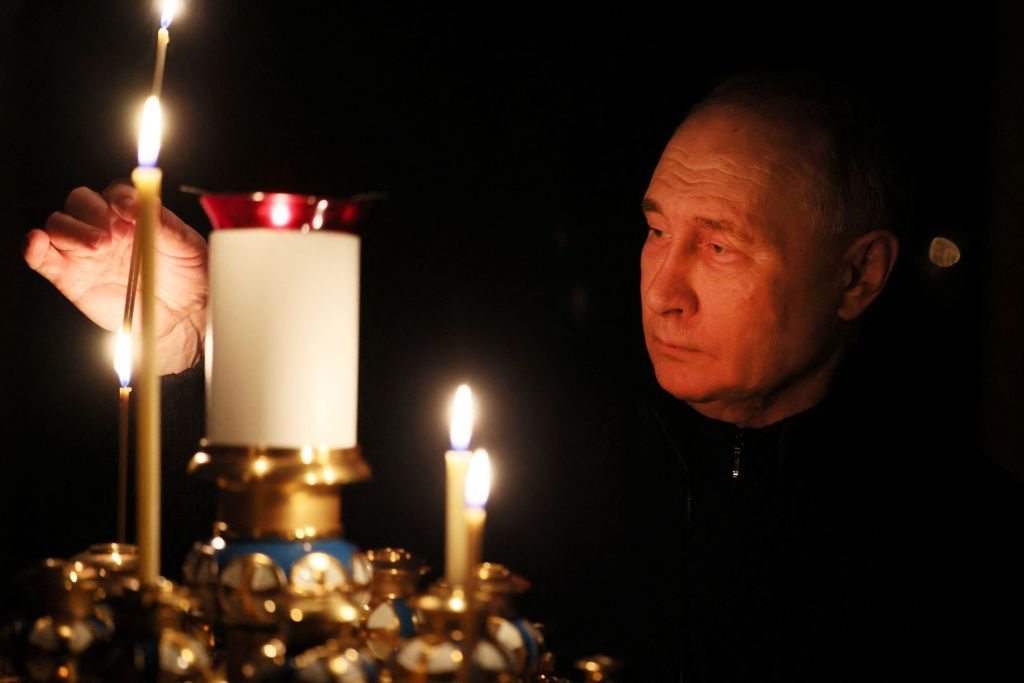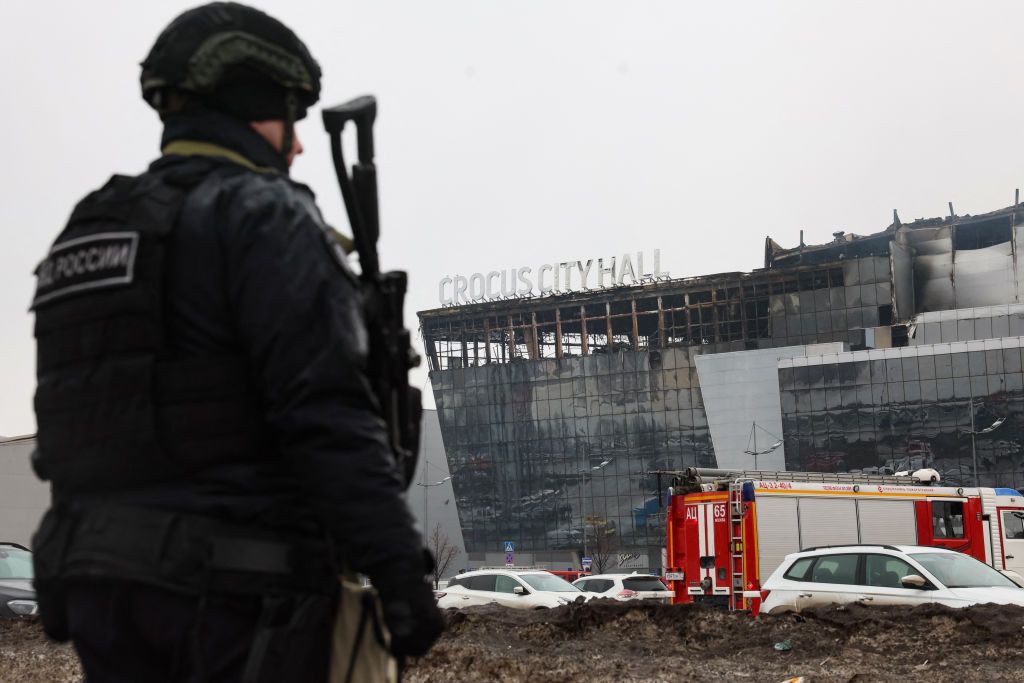The Kremlin appears to have prioritized the strategic value of blaming Ukraine for the March 22 Crocus City Hall attack over potential internal security risks and civilian casualties stemming from its failure to effectively address the terrorist threat within its borders, the Institute for the Study of War (ISW) said in its recent report.
"The Russian claims insisting on Ukrainian involvement forward the Kremlin’s longstanding effort to justify its ongoing full-scale invasion of Ukraine in the long-term by falsely portraying the existence of an independent and sovereign Ukraine as an existential threat to Russia," the ISW said.
Several gunmen opened fire at the Crocus City Hall in Krasnogorsk, a Moscow suburb, on the evening of March 22, killing at least 139 people, according to the latest updates by the Russian authorities. Russian authorities detained four suspects following the Crocus City concert hall attack. They are charged with committing a terrorist act. All of them have been remanded into pre-trial detention until May 22.
The terrorist group Islamic State has claimed responsibility for the mass shooting at the venue.
The ISW believes that the Kremlin and its ultranationalist allies are overlooking the serious threat posed by IS and IS-K activities within Russia. Instead, they prioritize falsely accusing Ukraine to influence public perception. At the same time, Russian leaders maintain access to minority communities potentially vulnerable to recruitment by extremist groups, seeing them as a resource for the ongoing conflict in Ukraine.
On March 24 and 25, a Russian ultranationalist military blogger reaffirmed baseless claims blaming Ukraine for the attack. He echoed other ultranationalist assertions, suggesting that IS and IS-K lack the capability to carry out a significant terrorist attack like the one at the Crocus concert venue. They argue that the IS claim serves as a cover to conceal alleged Ukrainian and Western involvement.
Russian propaganda also asserts that the IS operatives had intended to escape via a prepared 'window' into Ukraine. The conspiracy theory fails to explain why of the 16 nations with which Russia shares a land border, the operatives would chose to escape via the only stretch of border which is an active war zone and heavily fortified and patrolled by Russian military.
On March 25, Russian leader Vladimir Putin attributed the brutal attack at a Moscow concert hall to "radical Islamists." He emphasized that these individuals espouse an ideology that even the Islamic world has historically opposed. At the same time, Putin reiterated his suggestion that Ukraine was responsible for the attack.














